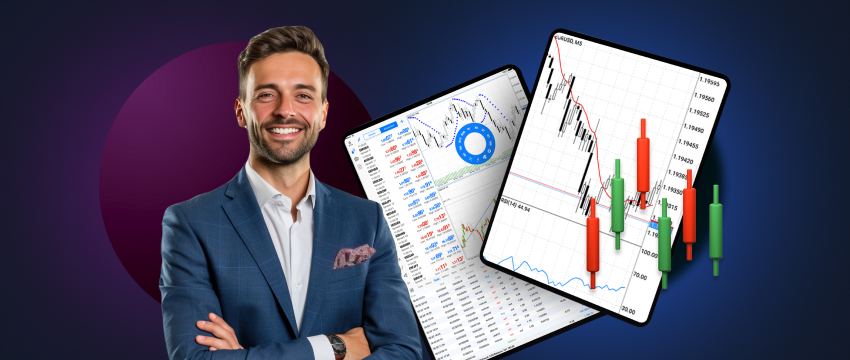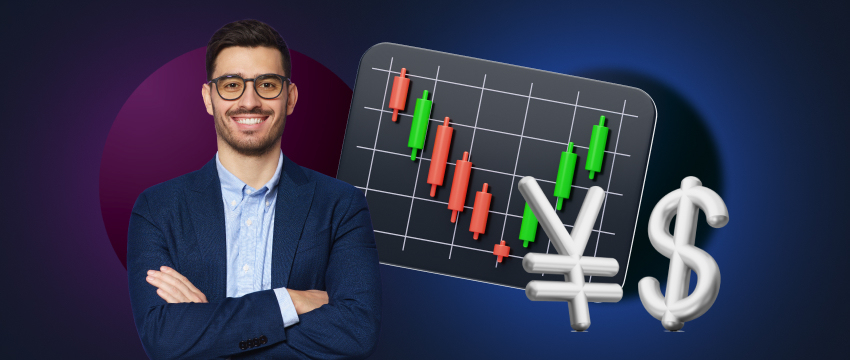Professional traders in many European Union member states and other countries across the globe partake in CFD trading for many different reasons. What some of those reasons are is what we’ll be discussing in this article.

6 reasons professionals may choose to use CFDs
Larger positions with less capital
CFDs are notoriously renowned for being highly leveraged financial instruments. This means that a trader with limited capital can use leverage to open a significantly larger position than what their account can accommodate.
But how? Well, leverage is essentially borrowed funds. The trader borrows money from a CFD broker to open larger trades, increasing trading opportunities as well as the potential for making larger profits. The issue with leverage however is that it’s incredibly risky. Pointedly so. This is because while it may increase gains, it also magnifies losses. Losses that a trader may be unable to afford, regardless of level of expertise.
When it looks like a trader’s account balance is going to fall below a specific threshold needed to keep a position open, the broker will issue a margin call, requesting that the trader funds the account. If the event that the trader is unable to meet the margin call, the broker may close the position.
Higher levels of liquidity
Liquidity in this context refers to the ease with which CFDs can be bought or sold in the market. The liquidity varies based on the CFD underlying asset. For example, where the underlying asset is a major currency pair or stocks, that CFD tends to have higher levels of liquidity. This is because there are a larger number of buyers and sellers actively participating in the market for these assets, making it easier to open or close positions at desired prices. This is another reason that CFDs appeal to professional traders.
A means to diversify a trading portfolio
A professional trader may opt for CFD trading to diversify their portfolio. How is this possible? Every CFD has an underlying asset associated with it. It is the price movement of this asset that the trader will speculate on in an attempt to make a profit. The underlying asset ranges from shares, indices, commodities, metals, currency pairs, futures, etc.
This offers the CFD trader access to different financial markets, and the ability to execute a variety of trades. Investing in more than just one type of CFD ultimately spreads the risk inherent to CFD trading. Consequently, should the price of one particular underlying asset move in a less than stellar direction incurring the trader a loss, they’ll still have other positions to fall back on.
Trading a variety of CFD financial markets
Professional traders often choose CFD trading to engage with different financial markets in different trading sessions. While this increases trading opportunities, it does require the trader to vigilantly monitor financial releases or news as they happen across the globe that could potentially impact asset prices. Remember that not all news is good news, and whilst some events may see prices move in a way a trader desires, others may see prices move adversely within minutes, so having the chance to react timeously is key to mitigating losses and protecting one capital.
Eliminating costs associated with traditional asset trading
Seeing as traders are speculating on the price movements of underlying assets, not having to physically own that asset essentially eliminates costs like insurance or storage.
Using CFDs as a hedging tool
Professional traders may make use of CFDs as a hedging tool to offset losses in their portfolios. How does this work? Well, if a trader holds a stock portfolio but anticipates a short-term downturn, they may utilize CFDs to short the market and possibly offset some of the losses in that portfolio.

Risk measures to protect one’s funds
As we’ve already mentioned, CFD trading, while appealing, does come with considerably high levels of risk, largely because of the volatility that leverage imposes. This requires that even the most professional of traders need to adopt clear-cut risk management techniques to safeguard their money.
The most common examples include stop-loss and take-profit orders. Further, a trader should also have an effective trading plan in place that aligns with the level of risk the trader is willing to take on, their budget, and the time they have to commit to trading.
Committing to ongoing learning
Regardless of how long one has been trading, committing to some form of ongoing learning is essential to boost or at least refine skills and capabilities. There are many educational resources for traders to access online to widen their scope of knowledge and to keep ahead of market or technological trends. In addition to online resources, brokers also usually offer traders high-quality learning material to become better traders.
For example, through T4Trade’s Academy, traders can access webinars, seminars, podcasts, and videos on demand, all of which are delivered by an expert team of analysts and researchers. T4Trade also offers an exceptional blog that touches on many of the key CFD trading concepts and many other trading fundamentals. In addition, the broker offers Live TV and a real-time Economic Calendar to track essential releases to make informed trading decisions.
Practicing trading using a demo account
Professional traders across the globe will also make use of a demo trading account to continuously refine their CFD trading skills. There are many reasons that they choose a demo account to do this. Let’s look at some of the most popular features of a demo trading account:
- opening a demo account will give you access to a simulated trading environment that mimics real-life market and trading conditions.
- you will be able to use the demo trading account to implement your CFD trading strategies, to see what works and what doesn’t. Having the ability to spot any potential weaknesses (and strengths) will enable you to tweak your strategy/ies if and when needed.
- using virtual funds, you don’t put your own money at risk, giving you the peace of mind to practice CFD trading at a pace that is best suited to your level of expertise or available time.
- seeing as a demo trading account allows you to get a better feel for real-life market conditions, you’ll become more equipped to deal with the challenges that live CFD trading will throw your way.
- a demo account gives you access to a trading platform through which you can practice using technical and fundamental analysis. This is one of the most critical components of CFD trading and serves as the basis for making trading decisions. One of the world’s most popular trading platforms is MetaTrader 4 (MT4) which is a firm favourite among traders worldwide. What makes this platform so popular is its robust features and functionalities that provide almost everything a trader needs to trade. It is also renowned for its user-friendliness and flexibility, as well as its ability to facilitate even the most complex CFD trading strategies.

Trading CFDs with T4Trade
T4Trade is a powerful broker that appeals to different traders in countries across the globe. This is largely due to its high-quality service offering, ranging from a choice of tailored account types, flexible leverage, quick deposits and withdrawals, fast execution of orders, and competitive spreads.
This comprehensive offering is complimented by a dynamic client support team who are available 24/5 to help traders with all their queries. The team is multilingual, highly informed, and can be reached through multiple communication channels like live chat or email.
Disclaimer: This material is for general informational and educational purposes only and should not be considered investment advice or an investment recommendation. T4Trade is not responsible for any data provided by third parties referenced or hyperlinked in this communication.




